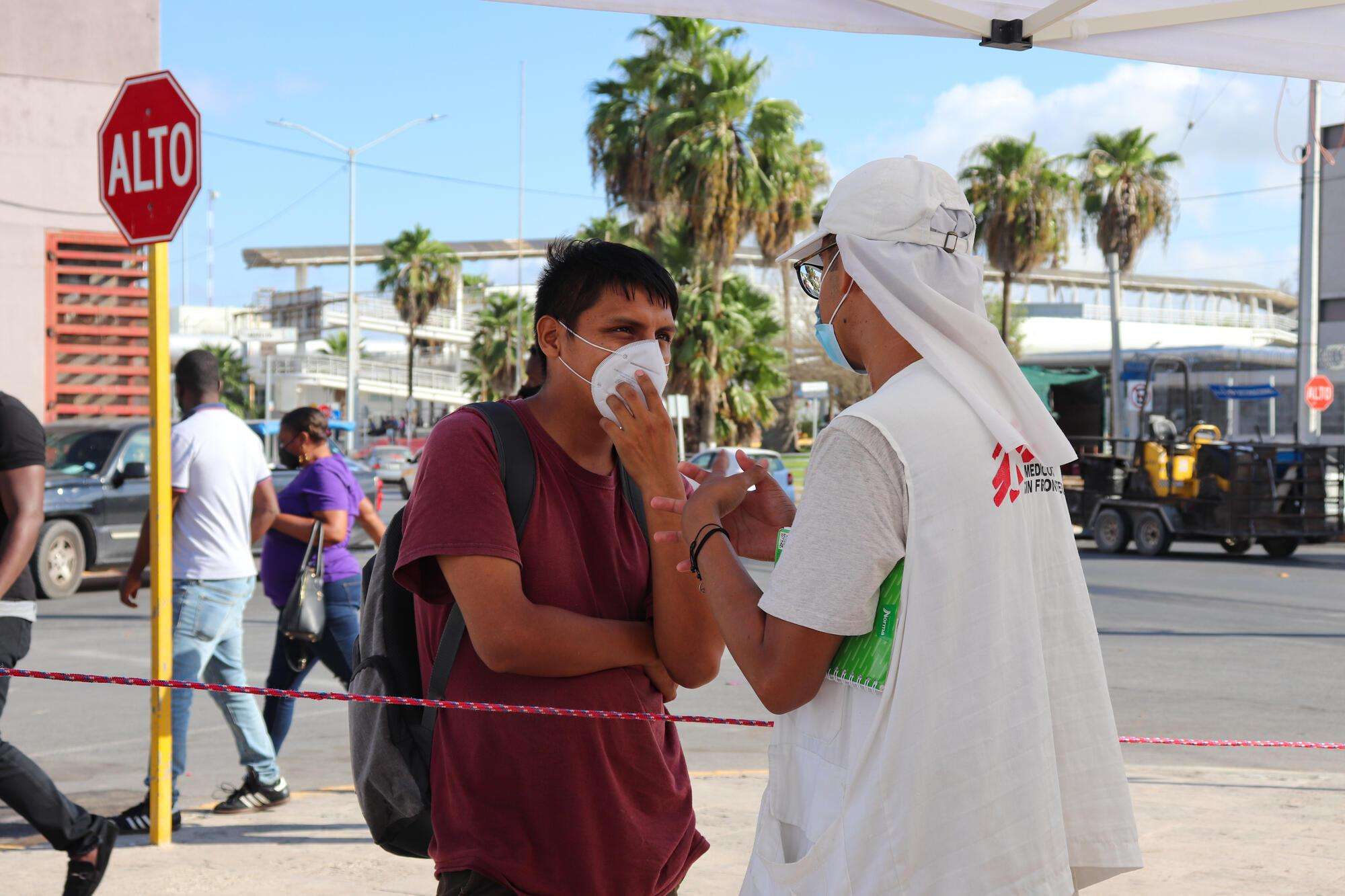Every year, hundreds of thousands of people—most of them from El Salvador, Honduras, and Guatemala—flee extreme violence and poverty at home, and undertake treacherous journeys traveling north through Mexico in search of safety. Despite their rights under international law, they are often rejected at the borders of destination countries like the United States. As a result, many wind up stranded in shelters and makeshift camps.
Every year, hundreds of thousands of people—most of them from El Salvador, Honduras, and Guatemala—flee extreme violence and poverty at home, and undertake treacherous journeys traveling north through Mexico in search of safety. Despite their rights under international law, they are often rejected at the borders of destination countries like the United States. As a result, many wind up stranded in shelters and makeshift camps.
More than 5,000 displaced people are currently living in precarious conditions in the Mexican city of Reynosa, at the border with the US. At least 3,500 of them are staying in a makeshift settlement in Plaza de la República and in the Senda de Vida migrant shelter, many exposed to the elements and without access to basic services. Doctors Without Borders/Médecins Sans Frontières (MSF) provides medical and psychological care, health promotion, water, and migration counseling to people in both locations. From January 2020 through September 2021, MSF teams have cared for nearly 12,700 people in the cities of Reynosa and Matamoros at the US–Mexico border.
To mark International Migrants Day on December 18, MSF asked several people staying in Plaza de la República and at the Senda de Vida shelter to share their stories through photographs and testimonies. These stories portray the daily lives of people in the camp, the struggles they’ve experienced, and the urgent needs they face. They also show joy, resourcefulness, resilience, and solidarity.

Mexico 2021 © MSF
Elías
When they deport you from the United States, you have the idea in your head that you are going to be kidnapped. The security guard tells you that the safest place is the [Plaza de la República]. So, you get there and at least you can settle down and think about what to do.

Mexico 2021 © MSF
This was the first meal I received here in Reynosa, three days after I was deported from the United States. Every day I went to line up, but the food had run out by the time I got there. I felt [ashamed] because I have never gone around begging—but I had no money and my family was hungry.

Mexico 2021 © MSF
I couldn’t move from the tent for three days. The only thing my wife did was to put wet clothes on my forehead. There was a virus that went through the camp, you couldn't get up, it hit us all. Even though we were in the middle of tremendous heat we were all cold. It was not COVID, because we all tested negative.

Mexico 2021 © MSF
It was my birthday, and my brother told me he was going to send some money but he couldn’t. I got sad and said we should cancel. But everyone came together to buy me chicken and a cake. Even though we are not relatives, we are going through hard times together. So there's always happiness.
Elidia

Mexico 2021 © MSF
My little girl will never forget where she celebrated her 10th birthday. A few days before she told me, “Mommy, it's going to be my birthday, and I don't want to be here.” But she spent that day with other children, and, in the end, she had a great time.
Claudia

Mexico 2021 © MSF
The yellow tent is the kitchen where we serve food. Here we welcome new arrivals with hot coffee and a loaf of bread. Receiving them and being able to share a moment or a meal during this pilgrimage will be a memory that will stay with me forever.
Idalia

Mexico 2021 © MSF
I had to flee my country. I could only grab my cell phone, my papers, and a T-shirt I wore the day my grandfather died in my arms. When I arrived in Reynosa, I was given this bible—it has helped me to move forward. For me, it represents my family, my church, and my desire to help others.
Xiomara

Mexico 2021 © MSF
When donations arrive at the yellow tent, we make welcome kits with personal hygiene items and clothes. It gives me satisfaction to be able to help, to see the smiles on people’s faces when they receive a gift or to see the happiness of the children when they receive candy.
Jenny

Mexico 2021 © MSF
We are the “three musketeers” because while everyone sleeps, we are the only ones left in front of the bathrooms. Here we all cooperate and even the girls and boys help their mothers with the cleaning.
Merari

Mexico 2021 © MSF
I never imagined living this experience. And if anyone ever finds themselves in the same situation, I would like to tell them, “Give it your best shot, yes you can. If I could do it, you can too, cheer up!”
THE SOUNDS OF THE CAMP
Click on the icons in the map of the plaza to hear the sound scape that dozens of migrants and asylum seekers encounter in Reynosa.

